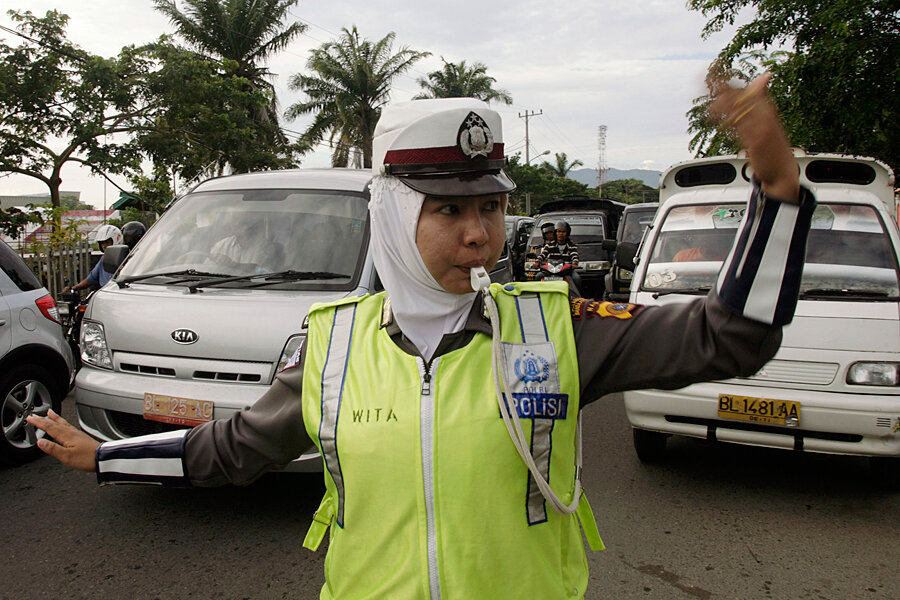Why is Indonesia subjecting female police applicants to virginity tests?
Loading...
It's not easy becoming an Indonesian policewomen. Among the requirements: applicants must be 17.5 to 22 years old, high school graduates, unmarried, God-fearing, at least 65 inches tall - and they must be virgins.
That's according to a Human Rights Watch report that reveals that the Indonesian government subjects female applicants for Indonesia’s National Police to "discriminatory and degrading" “virginity tests," a requirement clearly spelled out on the national police jobs website.
"In addition to the medical and physical tests, women who want to be policewomen must also undergo virginity tests," the website says. "So all women who want to become policewomen should keep their virginity."
News of the virginity requirement has unleashed a backlash from protestors who call the tests degrading, discriminatory, traumatizing, and humiliating.
“So-called virginity tests are discriminatory and a form of gender-based violence – not a measure of women’s eligibility for a career in the police,” Nisha Varia, associate women’s rights director at Human Rights Watch, said in a statement. “This pernicious practice not only keeps able women out of the police, but deprives all Indonesians of a police force with the most genuinely qualified officers.”
Several female applicants interviewed by HRW described the practice.
One woman who applied in 2013 said she was "shocked" when she was told that the health tests included a virginity test. "I felt embarrassed, nervous, but I couldn't refuse," she told HRW. "If I had refused, I couldn't have become a policewoman."
Another described having to fully undress in front of 20 other candidates before entering the exam room in pairs for the test.
“Entering the virginity test examination room was really upsetting,” she said. “My friend even fainted.”
She described the tests as "painful and humiliating."
Why does Indonesia subject its female applicants to a virginity test?
In fact, would-be policewomen have been undergoing the controversial tests for decades. One retired police officer told HRW her class had to undergo virginity tests in 1965.
"It's an old practice based on belief that a [female] virgin is healthier and morally fitter," HRW Indonesia researcher Andreas Harsono told the Global Post.
When asked why the tests are still performed, a police official only said “all tests” are meant to get “the best” applicants.
"It's not only a virginity test, it's also a genital and urinary examination to check for diseases and infections," Rusdianto, the head of the health center at the police headquarters in Jakarta, told the Global Post in defense of the practice. He also said the virginity tests do not eliminate candidates, which the HRW confirmed.
Applicants who “failed” were not necessarily expelled from the force, its report found.
Nonetheless, the practice goes against national police principles as well as international human rights policy, says HRW. Indonesia has ratified the Convention on the Elimination of All Forms of Discrimination against Women, and according to the country's national police principles, recruitment must be "non-discriminatory" and "humane."
HRW’s investigation into the virginity tests follows a recruitment drive by the national police force to hire 50 percent more females by December in order to boost the proportion of female officers to 5 percent of the 400,000-member force.
The organization has called on Indonesia's police force to stop the practice.
“The Indonesian National Police’s use of ‘virginity tests’ is a discriminatory practice that harms and humiliates women,” the HRW's Varia said in a statement. “Police authorities in Jakarta need to immediately and unequivocally abolish the test, and then make certain that all police recruiting stations nationwide stop administering it.”








